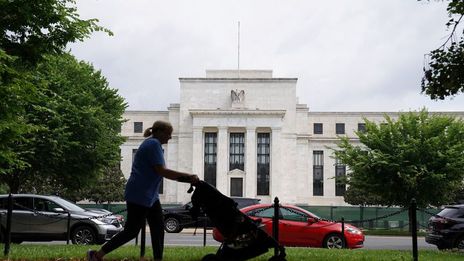January 19, 2016
On January 15, 2016, the Executive Board of the International Monetary Fund (IMF) concluded the Fourth Post-Program Monitoring Discussion with Ireland, and considered and endorsed the staff appraisal without a meeting on a lapse-of-time basis.
Ireland's economy continues to improve at a robust pace. Real GDP expanded by 7 percent year-on-year over the first three quarters of 2015, with investment providing the largest contribution to growth followed by private consumption. High frequency indicators suggest that the strong economic momentum continued into the last months of 2015. Steady job growth of about 3 percent year-on-year in the third quarter helped reduce the unemployment rate to 8.8 percent in December. Exchequer data for December indicate that 2015 revenues significantly exceeded the initial budget profile, whereas spending recorded a modest increase, leading to a likely outperformance of staff's estimate of the 2015 general government deficit (1.9 percent of GDP).
Financial conditions have remained largely supportive despite volatility in global capital markets. The ECB's quantitative easing has helped keep Irish government yields close to their historical lows. The rise in the residential property markets has somewhat abated in recent months in the wake of the macroprudential measures enacted by the CBI in February 2015, while the supply of new residential housing remains modest. Upward price pressures are stronger in the commercial real estate market. Banks' asset quality is improving, and mortgage arrears have continued to fall, but profitability remains modest and the loan portfolio continues to contract, albeit at a slower pace.
Executive Board Assessment
Ireland is enjoying the fastest growth in the European Union, but challenges remain. The recovery accelerated in 2015 and has become more broad-based, with domestic demand overtaking net trade as the dominant driver of growth. Employment expansion is continuing unabated, and the unemployment rate has fallen below 9 percent. Financing conditions remain exceptionally favorable, but upward pressures on house prices are continuing. The outlook is positive and risks are broadly balanced. Yet vulnerabilities are still elevated, particularly public and private debt burdens are high, lending importance to the unfinished task of rebuilding economic resilience.
While it is appropriate to share some fruits of the recovery after years of difficult adjustment, fiscal discipline must be maintained to rebuild room for policy maneuver. Strong growth in 2015 has enabled outperformance of the fiscal targets despite an easing of the underlying stance. Public debt is set to fall below 100 percent of GDP by end-2015. The fiscal plans outlined in Budget 2016 and the consolidation pace consistent with reaching a structural balance in 2018 are broadly appropriate. Maintaining structural balance thereafter would be the minimum required to ensure a prudent pace of debt reduction. Yet the budget measures could have avoided tax base erosion, been better targeted and more protective of budget resources. The resulting savings would have created additional room for capital spending and support sustainable growth. Any future fiscal space should be used to accelerate debt reduction, and to rebuild buffers to allow Ireland's small and open economy to face external shocks.
The economic recovery has supported the ongoing banking system repair, where more remains to be done. Achieving durable profitability while accelerating balance sheet cleanup would support future lending growth and boost banks' resilience to shocks. Provision releases should be based on conservative assumptions and collateral reappraisals. Supervisors must ensure that banks' business models appropriately balance profit seeking and risk management, and that loan pricing adequately reflects credit risk and barriers to collateral realization. As economic conditions change, periodic impact assessment and recalibration of macroprudential measures will be needed to ensure their effectiveness in enhancing the resilience of banks and households and reducing the likelihood of another cycle of boom and bust.
Measures to boost the supply of housing are a welcome step toward addressing the housing market imbalances. They should help reduce building costs and could jump start construction activity, particularly of lower-cost homes where profit margins are tighter. Administrative measures on rents, however, could reduce the return on investment properties and thus dissuade construction.
IMF - International Monetary Fund issued this content on 2016-01-19 and is solely responsible for the information contained herein. Distributed by Public, unedited and unaltered, on 2016-01-19 19:09:04 UTC
Original Document: http://www.imf.org/external/np/sec/pr/2016/pr1614.htm














